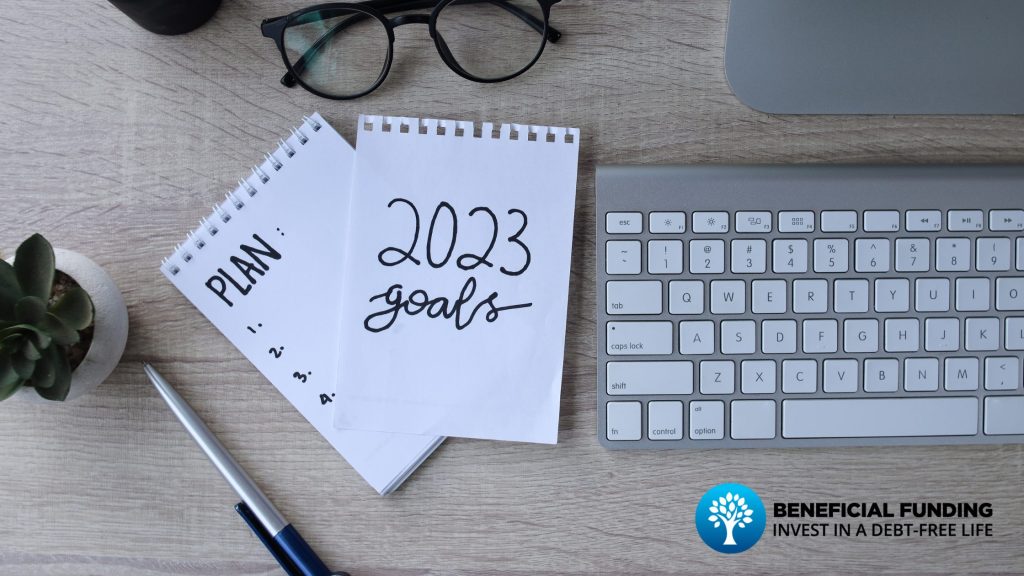Develop Healthy Financial Habits in 2023

As a new year approaches, developing healthy financial habits is another resolution to add to the list. Having good spending habits makes it easier to deal with money and act quickly when you need to make a decision or deal with a problem.
What is a financial habit?
A financial habit is a way or standard that individuals practice in managing their daily financial lives. Financial habits differ from one person to another, given that our financial capabilities are different.
Around middle childhood, people begin to form their first money habits. In adulthood, these attitudes and norms affect many financial actions and habits, and they continue to change during adolescence.
Why do some people like to spend money?
People may decide to spend their money for a variety of reasons. Just like our financial habits differ, our motives to spend money and where to spend it differ too.
Here are some of the reasons why some people like spending money:
To feel better and to be happy.
Contrary to popular belief, money does buy happiness (well, temporarily). It may not be accurate for others, but it is for some. According to research, there is a correlation between money and happiness (or life satisfaction).
Material things and experiences make people happy, and money is the tool they use to acquire these sources of happiness.
It’s a way to channel stress, anger or other emotions.

People acknowledge using “retail therapy” to achieve mood improvements brought on by unfavorable emotions. And we tend to overspend when we are down. People can imagine themselves in a “better” existence when they wear great clothes, are surrounded by nice things, or eat at high-end restaurants with friends. To achieve these, they spend money.
Money can give people more feeling of control.
Spending money, especially in the ways you want, gives a sense of control. As a result, people are most likely driven to work and earn money to reach financial freedom.
Therefore, they frequently need to purchase items to maintain this image, both for the benefit of how others perceive them and how they perceive themselves.So, they often have to buy things to keep up this image, which is good for how others see them and for how they see themselves. So, they often have to buy things to keep up this image, which is good for how others see them and for how they see themselves.
People want to reward themselves for hard work.
People use some of their earnings to treat themselves. It is a terrific motivator for them to keep going and take pride in their accomplishments.
Everyone can experience rewards differently. For some people, that can be online shopping that results in a new wardrobe, while for others, it might be concert tickets, a lavish dinner, or a vacation.
They grow up in a more financially secure environment.
Not having to worry about money also means having no worries about spending it. Growing up in a more financially secure environment shapes how you handle your finances.
To show love and affection.
Some people spend more money on others than on themselves. For example, they usually spend their money on their family and friends to show their love and affection.
Gift-giving is a form of love language for most people, whether on occasion or just because the people around them remind them or ask.
Why are financial habits important?
Developing a healthy financial habit is crucial to living a life with financial challenges that results in less stress.
Financial habits can help reduce stress.
Having a system for managing finances can help reduce stress. A spending habit gives transparency about where the money goes, especially if one keeps track of it on paper or in Excel files.
Financial habits can help you identify your spending patterns.
Once you have identified your spending patterns, it is easier to control your spending. This gives you an idea of the areas on which you are spending the most and how to minimize them.
Bad financial habits can affect your relationships.
Having bad financial habits can affect relationships. Asking for money from family or friends during financial challenges can cause a stain on your relationship. So ask for help from a financial team like Beneficial Funding to provide a personalized plan.
Financial habits enable you to reach your goals faster and more efficiently.
A financial habit can lead to reaching financial goals if you have built a good one. This means having a plan in mind for how you would spend your income and setting a target amount you want to achieve for your savings.
They help you be ready for emergency expenses.
There are unforeseen events that require unforeseen expenses. A good financial habit should prepare you for this. An emergency fund is a crucial safety net to ensure you don’t use up your other funds set aside for ordinary bills.
Good financial habits can free up time.
Having good financial habits will leave you with enough money. This means not having to work more jobs for a longer period of time. Some people who have good financial habits retire earlier because they have good investments and enough money in the bank to support them.
10 good financial habits to build
Whether your ultimate goal is financial freedom or getting out of debt, you need to start by getting into good money habits. Here are ten good financial habits to adopt to get you started.
1. Track your spending
Learning to track your spending is the first step to controlling your money. Understanding what happens to your monthly money requires keeping track of your spending.
You are aware of both your income and outgoing expenses (your expenses).
2. Set a budget and stick to it
A budget you create and follow is essential to managing your debt and making progress toward any savings target.
By making a budget and sticking to it, you can determine if you have enough money to pay your bills and still have money left over to save or spend on extras you might desire for yourself or your family.
3. Pay your bills on time.
A good financial habit is also about being accountable. Therefore, always make sure to pay your bills, and pay them on time. Failure to pay bills on time may also result in penalties, which are unnecessary expenditures.
4. Save for unexpected expenses.
Sometimes, no matter how much you plan, there are unexpected expenses. For example, an appliance at home suddenly stops working, and you’ll need to fix it or get a new one. Make sure to keep an extra for these instances.
5. Work toward having an emergency fund
Emergencies and unfortunate events can happen. A good financial habit will prepare you for these. Therefore, always have a portion of your monthly income in the bank for emergencies.
6. Make retirement savings a priority
You can only work for a while. At some point, you’ll need to retire to give your body a break and enjoy life more. When this point comes, make sure you are already financially stable.
7. Use credit responsibly
Try to settle your account in full each month. Your balance is the amount you owe on your credit card. Try to pay it off completely each month by the due date.
8. Choose your insurance wisely
The best way to protect oneself from life’s uncertainties is through insurance. However, it’s crucial to weigh your options carefully while comparing insurance policies. Review the policies and coverage to ensure that you receive value for your money.
9. Get good legal advice
Whether for insurance, investments, or everything else you put your money on, always seek legal advice. This ensures that you are on the right track.
10. Live below your means
You must develop financial self-discipline by living within your means. If you want to practice financial discipline, you must be organized with your earnings, spending, and investing.
10 examples of bad financial habits
When trying to save money or plan investments, many people struggle. It is a result of bad financial habits. We’re here to highlight the most typical monetary mistakes that people make.
1. Living above your means
One of the worst spending habits is spending more than you make. As a result, you’ll expect to rack up debt and depend on credit cards.
2. Not setting financial goals.
Compared to those without a plan, individuals who have laid out their financial goals indicated they feel “extremely confident” about achieving them. Undoubtedly, those who have a plan have better financial practices when it comes to investing and saving.
3. Not saving for retirement.
Living in the moment is not bad until the future becomes the moment you are already in, and you have not saved up for it. Not saving for retirement means becoming elderly and having to rely on their children for support.
4. Paying bills late.
If you don’t pay your bills on time, you have to pay penalties, which are extra costs that could have been used for more important things.
5. Not paying attention to how much debt you have.
Failure to keep track of your debt can result in a large amount of debt or more debt. As a result, keeping an eye on your debt levels in order to repay them or knowing your options is critical.
Beneficial Funding can offer convenient options to pay off debt quickly and be debt-free for life.
6. Making impulse buys without thinking.
More often than not, the items you buy on impulse are things you do not need. Take the time to think and check your budget before buying something impulsively.
7. Waiting for a perfect time to start saving
There’s no perfect time to start saving because the time is now. Saving doesn’t always have to start with a significant amount. A small one will do as long as you start it and are consistent with it.
8. Not budgeting
Allowing your money to slip away is a huge red flag in financial management. Allowing your money to slip away is a huge red flag in financial management. Budgeting is a good method for identifying where your money goes and if your spending is necessary and can be minimized.
9. Not having an emergency fund.
People who have gotten big bills they didn’t expect will probably tell you how glad they were to have an emergency fund or how hard it was to find the money they needed quickly.
10. Not planning for the future.
Most people experience financial difficulties as a result of poor future preparation. As a result, they focus their financial decisions on their current situation, which keeps them in a debt cycle and prevents them from saving money.

Build better Financial Habits this 2023
Building good financial habits doesn’t always mean having a lot more money than you need. It means being smart with your finances.
Acquiring a person loan doesn’t always mean having bad financial habits, as long as you’re associated with a financial team that gets you to your financial goals, like Beneficial Funding.
Schedule an appointment with us today, or call us at (888) 564-5590 and let us help you start achieving a debt-free life!
Did you receive a Pre-Approval code in the mail? Visit us online and enter your code to start the application process.


